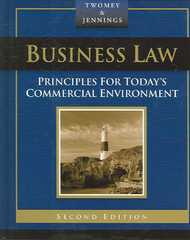


don't know any of these answers...may not be correct even if filled in. Please answer quickly. just need answer and not explanations. Thanks!
Suppose that an economics professor selects two students, Audrey and Michael, to participate in a classroom experiment. The professor gives Audrey twenty $1 bills. Audrey must pick an allocation of the twenty $1 bills to o'er to Michael. If Michael accepts the allocation, each student keeps his or her portion of the money. If Michael rejects the allocation, the professor keeps the $20, and each student receives nothing. Audrey selects $19 for herself and $1 for Michael. Based on the studies of human decision making, which of the following statements is correct? a. If Michael accepts the o'er, he is behaving rationally. b. If Michael rejects the offer, he may value fairness more than $1. c. If Michael rejects the offer, Audrey made a bad choice by ying to keep $19 for herself. 0 d. Any of the above could be correct. Scenario 22-4 Three members of the DiCarlo family, Vinny, Maria, and Franki, are choosing the entree for a large family reunion. Their options are: spaghetti, ravioli, lasagne, and pizza. Vinny prefers spaghetti over lasagne, lasagne over ravioli, and ravioli over pizza. Maria prefers ravioli over spaghetti, spaghetti over pizza, and pizza over lasagne. Frankie prefers pizza over ravioli, ravioli over lasagne, and lasagne over spaghetti. Refer to Scenario 22-4. If, before any votes were cast, ravioli was eliminated from the choices and the vote were conducted according to a Borda count system where each person's first choice receives 3 points, second choice 2 points, and third choice 1 point, the election winner would be O a. pizza. b. spaghetti O c. lasagne. O d. The result would be a three-way tie between pizza, spaghetti and lasagne.Frequently it is the case that: A worker knows more than his employer about how much effort he puts into his job, and (2) the seller of a used car knows more than the buyer about the car's condition. a. Neither nor (2) serves as an example of asymmetric information. b. Both and (2) serve as examples of asymmetric information. 0 c. Neither nor (2) serves as an example of a hidden action. d. Both and (2) serve as examples of hidden action. Economic theory assumes people are always rational. Yet observation indicates that people do not always behave rationally. Which of the following is not a systematic mistake people make in their decisionmaking? a. People oen interpret information to t beliefs already held. b. People place too much emphasis in their decisionmaking on a few extreme situations of which they are aware. c. People tend to view current prices differently than they view future prices. d. People are too sure of their own abilities. Which of the following is an example of signaling? a. Pat is considering the purchase of a used car. Before making the purchase he has the car checked by an auto mechanic. b. Zach is applying for a new life insurance policy. Before writing the policy, the insurance company requires Zach to he examined by a doctor. 0 c. Denise is applying for a new job. Before hiring her, the rm requires Denise to take a drug test. d. Marcus is planning to ask for Chaquila's hand in marriage. Before asking her, he buys her a box of her favorite chocolates and takes her to dinner at her favorite restaurant














